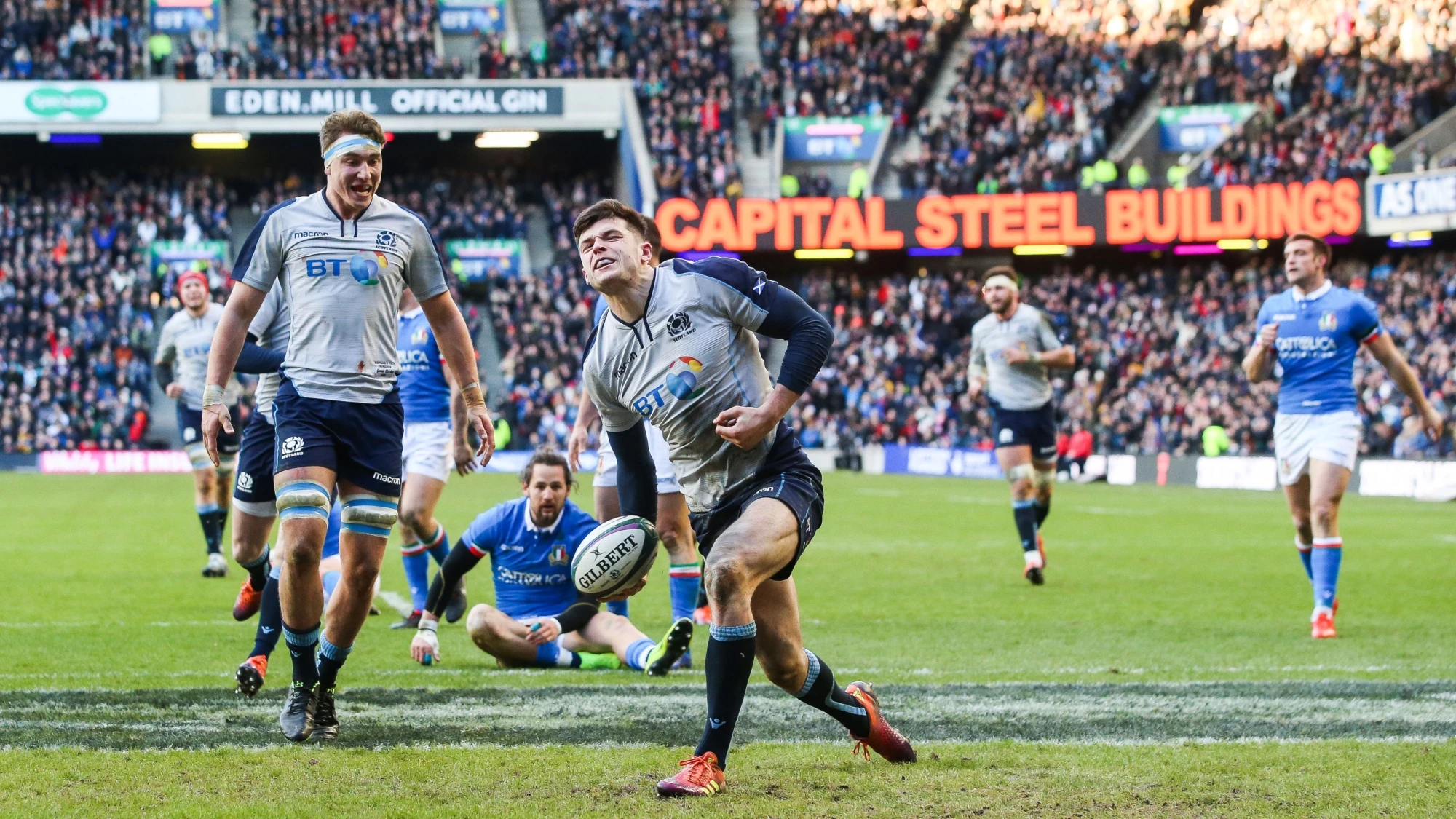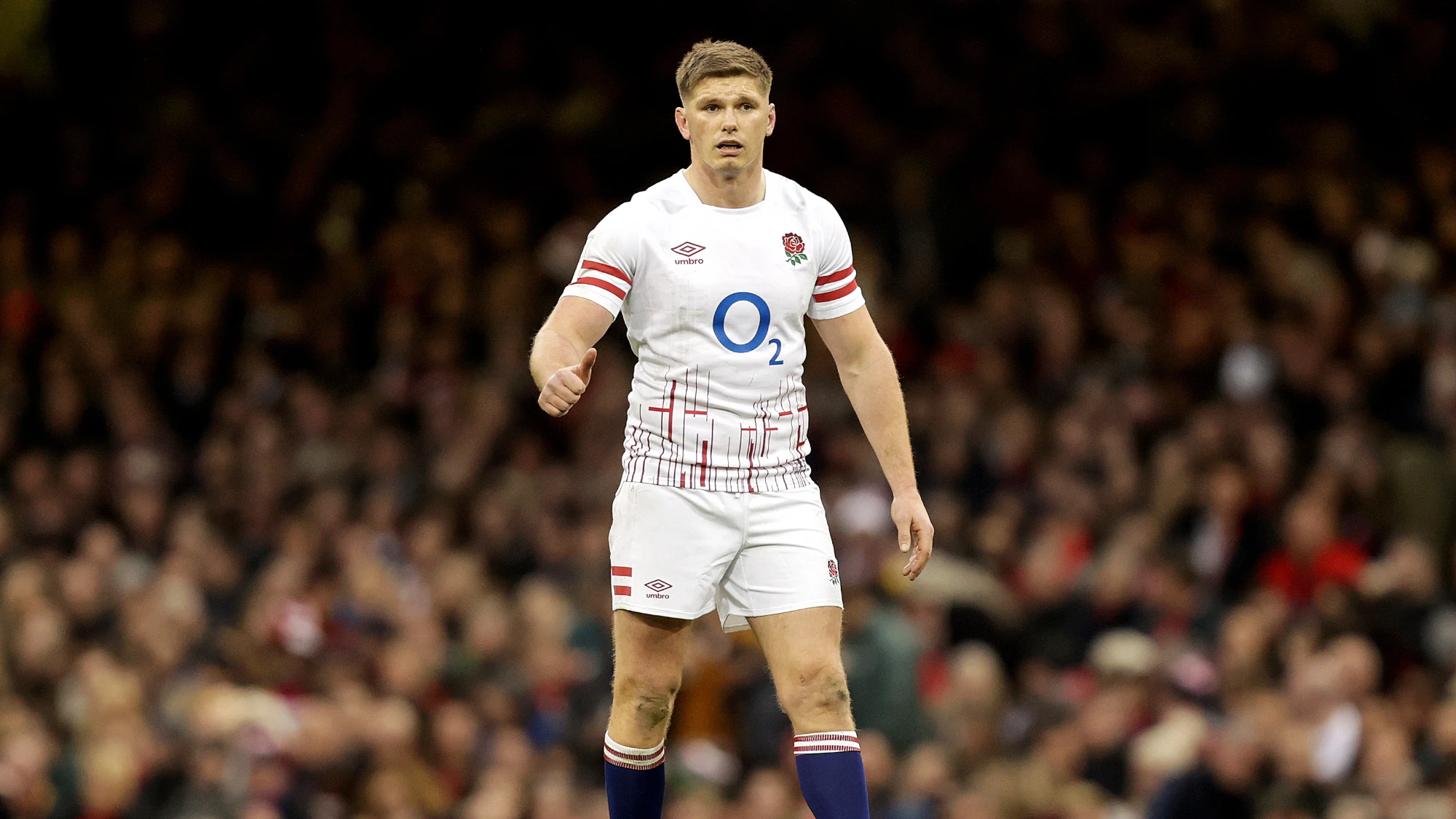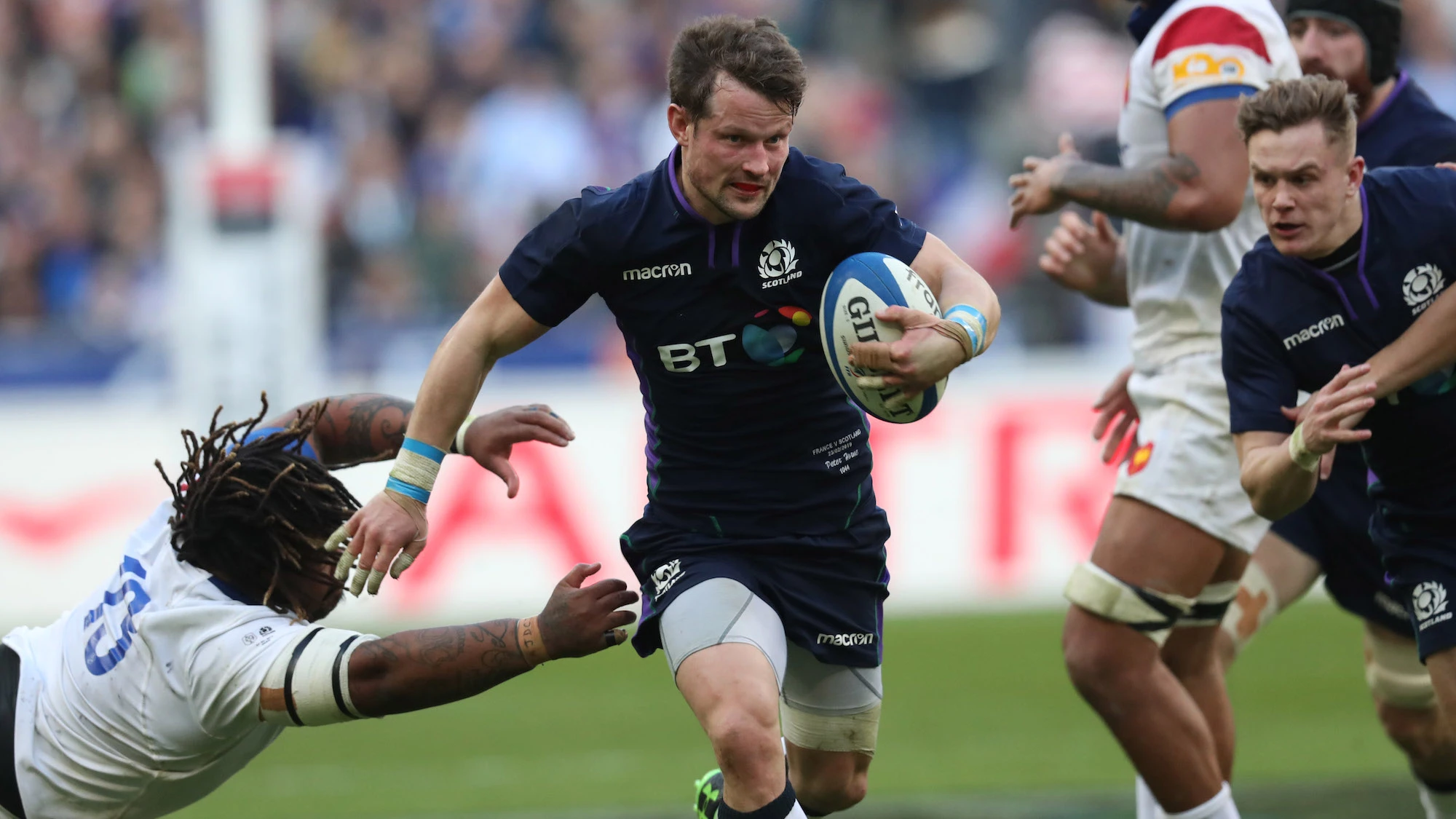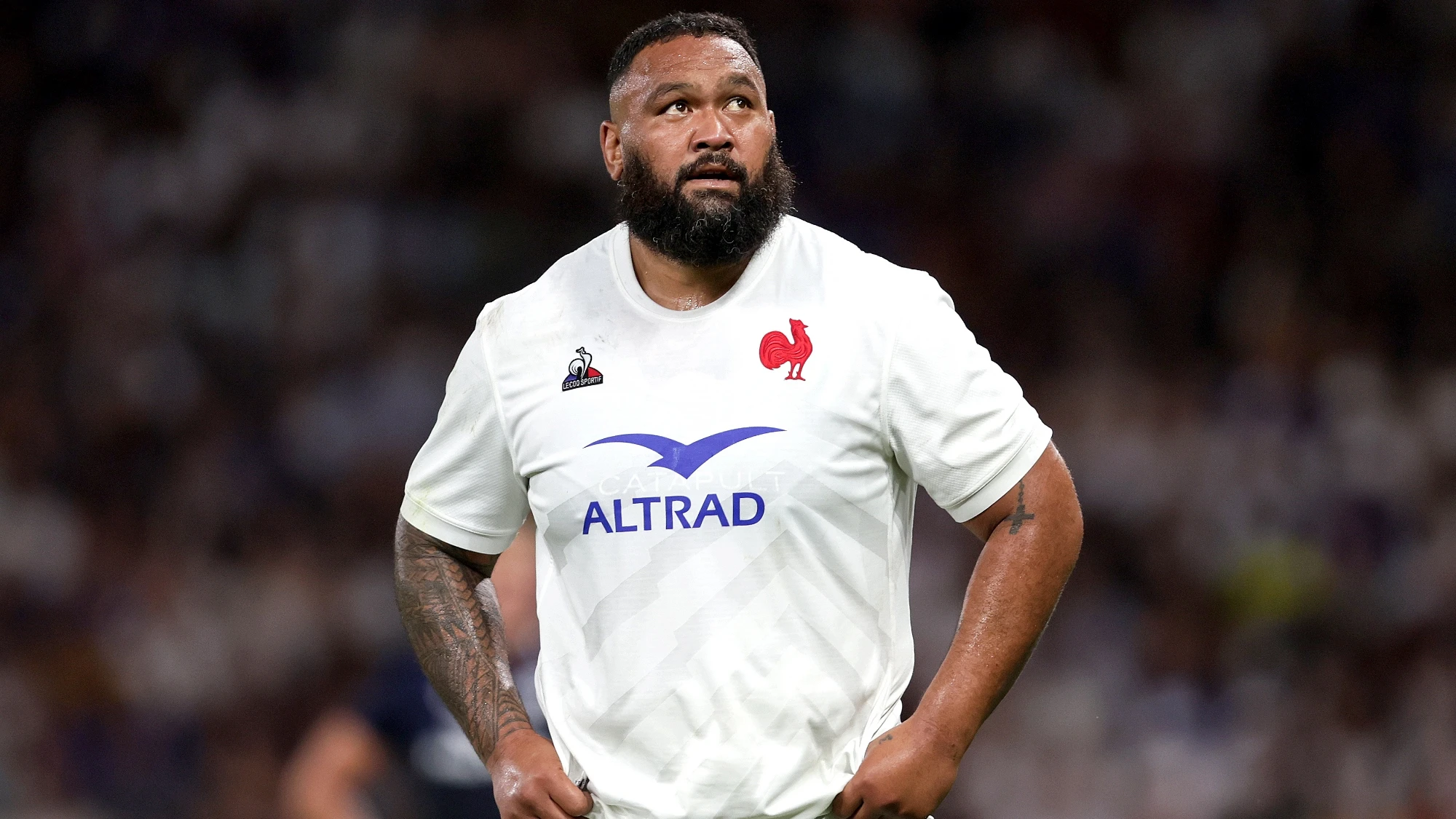In the latest of a series of columns throughout the Guinness Six Nations, official statistician Stuart Farmer takes a deep dive into the hat-trick heroes and the greatest comebacks in Rugby’s Greatest Championship.
There have been just 53 individual hat-tricks in the history of the Championship, which began way back in December 1882, and the last 17 of those have been scored in the Six Nations era – the two scored this year being memorable for differing reasons.
Blair Kinghorn ran in three against Italy on the opening weekend, only the 11th Scotsman to grab a Championship hat-trick, but just the second for his country in the last 93 years.
The other of those was also scored by a left winger, Iwan Tukalo against Ireland at BT Murrayfield in March 1989.
This campaign’s other hat-trick was completed in only 29 minutes by England’s Jonny May against France at Twickenham in Round Two.
His effort was only the sixth first-half hat-trick in the 137-year history of the Championship, and only one of those had come since five nations became six – when Vincent Clerc dotted down for his third try in the 37th minute of the France v Ireland game at the Stade de France in 2008.
May’s feat was, however, not the fastest hat-trick from the start of a game, this honour goes to Scotland’s prolific wing Ian Smith against Wales at St Helen’s, Swansea on 7 February 1925.
Smith ran in Scotland’s first three tries of the afternoon within 13 minutes of referee Bib Baxter’s opening whistle.
As The Scotsman newspaper recalled at the time “within two minutes Scotland led by five points with a perfectly executed move characterised by short, sharp passing, and a typical run by I.S Smith”.
It went on “Six minutes later the same thing happened”, and finally “hardly five more minutes had passed when history repeated itself, Smith getting his third try after another spectacular run”.
It was Smith’s third Championship hat-trick, an individual mark which has never been surpassed.
The first to have achieved the feat of a hat-trick before the half-time whistle was possibly one of the most unlikely.
Newport forward Jehoida Hodges, on the occasion of his 12th Wales cap and in the days before replacements, was withdrawn from the pack in the 25th minute to play on the wing when skipper Tom Pearson fell to a heavy tackle.
It was an inspired switch as Hodges scored three tries in 15 minutes to leave England trailing 21-0 at the break.
Only two other forwards have ever scored a Championship hat-trick (but not all in the first half); French back-rower Michel Crauste against England at Stade Colombes in 1962 and Irish No.8 CJ Stander against Italy in Rome two years ago.
The fastest-ever Championship hat-trick was scored in the space of just eight minutes and 25 seconds by Austin Healey for England at Stadio Flaminio on 18 March 2000, hitting Italy with a devastating burst which began in the 44th minute taking England 28-7 ahead and finishing in the 53rd minute with his third try increasing the score to 40-7.
The opening game of the 2019 Guinness Six Nations proved to be a real record-breaker with France ahead 16-0 at half-time at the Stade de France and seemingly cruising to victory, but how wrong that prediction proved to be.
Wales scored their first points with a Tomos Williams try, on his Guinness Six Nations debut, in the 47th minute and George North’s 18th five-pointer in Championship history eight minutes from the end gave the visitors their first lead in the match before Dan Biggar’s conversion closed out an unlikely victory with a 24-19 scoreline.
It was unprecedented, no team had ever turned around a 16-point deficit to win in Championship history.
The previous best comeback to win was instigated by France, when they started slowly in Dublin in 1989 and found themselves 15-0 down just after the half-hour mark.
Racing Club wing Jean-Baptiste Lafond opened the scoring for Les Bleus with a 37th-minute try, with Lafond and Michael Kiernan swapping two penalties apiece to leave Ireland seemingly in control at 21-7 with 52 minutes gone.
The French then ran in three tries (four-pointers in those days) in the last quarter to emerge unlikely victors.
France have actually been involved in five of the six biggest comebacks/capitulations in Championship history, winning three and losing two of those encounters.
Meanwhile Wales have figured in three of those six instances and won all three, amazingly all away from home, rightly earning the title of “comeback kings”.
The other two occasions were when they overturned 13-point deficits – firstly to win at the Stade de France in 2001 and repeating this at Twickenham in 2008.
Wales did come mighty close to surrendering a 19-point lead at BT Murrayfield in 2001, when a Neil Jenkins conversion of Mark Taylor’s try took them 25-6 ahead in the first few minutes of the second half.
However the hosts then ran in tries from Chris Paterson and James McLaren to a single penalty from Jenkins to leave them trailing by seven points inside the last minute of normal time.
Prop Tom Smith then beat two defenders with a dummy and sprinted over before Duncan Hodge’s nerveless conversion with his first kick of the game, after taking over tee duties from Kenny Logan, tied the score at 28-28.
Hodge even then had the chance to win it but his 83rd-minute drop goal attempt (the sixth attempt of the afternoon) was charged down and the Scots ended with a remarkable draw.



